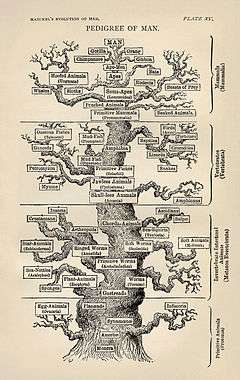Lipidology
Lipidology is the scientific study of lipids.
History
Compared to other biomedical fields, lipidology was originally less popular since the constant handling of oils, smears, and greases was unappealing and separation was difficult.[1] The field became more popular following the advent of chromatography which allowed lipids to be isolated and analyzed.[1] The field was further popularized following the cytologic application of the electron microscope which found that many metabolic pathways take place on the cell membrane, whose properties are strongly influenced by its lipid composition.[1]
Clinical lipidology
The Framingham Heart Study and other epidemiological studies have found a correlation between lipoproteins and cardiovascular disease.[2]
See also
References
- Books
- Kates, Morris (1972), Techniques of lipidology; isolation, analysis and identification of lipids, Laboratory Techniques in Biochemistry and Molecular Biology, Amsterdam, New York: North-Holland Pub. Co.American Elsevier, pp. 269–610, doi:10.1016/S0075-7535(08)70544-8, ISBN 0444103503
- Therapeutic lipidology. Totowa, N.J.: Humana. 2007. ISBN 9781597455336.
This article is issued from Wikipedia - version of the 1/30/2016. The text is available under the Creative Commons Attribution/Share Alike but additional terms may apply for the media files.

